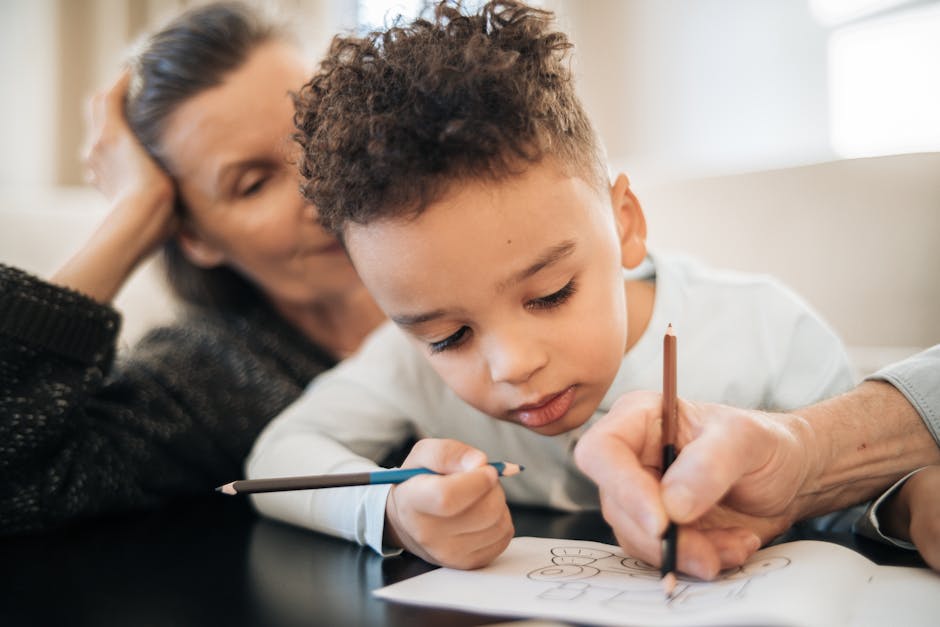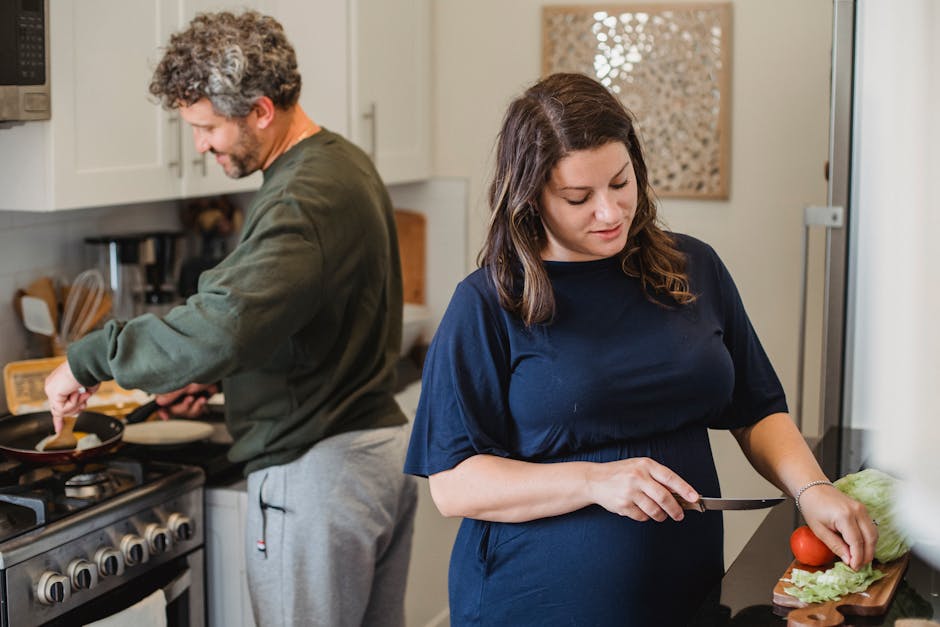How to Build Healthy Relationships with Friends
Friendships are essential to our well-being and happiness. However, knowing how to build healthy relationships with friends can often feel challenging. In this article, we will explore key strategies to cultivate and maintain friendships that enrich your life and create lasting bonds.
Essential Strategies on How to Build Healthy Relationships with Friends
Building healthy friendships is not just about having fun; it requires effort and understanding. Here are some effective strategies on how to build healthy relationships with friends:
- Communication: Open and honest communication is the foundation of any strong friendship. Always express your thoughts and feelings clearly to avoid misunderstandings.
- Trust: Trust is crucial. Be reliable and consistent to show your friends they can depend on you.
- Support: Being there for your friends during tough times strengthens your bond. Offer emotional support and encouragement whenever they need it.
- Respect Boundaries: Understand and respect each other’s personal boundaries to maintain a healthy dynamic in your relationship.

How to Build Healthy Relationships with Friends: Fostering Connection and Understanding
To truly deepen your friendships, consider these additional tips on how to build healthy relationships with friends:
- Quality Time: Spend quality time together. Whether it’s having coffee or enjoying a weekend hike, shared experiences enhance your connection.
- Be Forgiving: Mistakes will happen in any relationship. Learn to forgive and move forward together.
- Celebrate Achievements: Acknowledge and celebrate each other’s successes, no matter how small. This builds positivity and strengthens your relationship.
According to research from the American Psychological Association, strong friendships can lead to improved mental health and emotional resilience. Recognizing the importance of cultivating these relationships will motivate you to invest in your friendships.
Challenges to Avoid When Learning How to Build Healthy Relationships with Friends
When aiming to build healthy relationships with friends, one must also be aware of potential pitfalls. Here are some challenges to avoid:
- Neglect: Don’t let life’s distractions keep you from nurturing your friendships. Make an effort to stay in touch regularly.
- Negativity: Avoid being overly critical or negative. Positivity fosters a healthier atmosphere for friendships to grow.
- Comparison: Comparing your friendship to others can lead to insecurity. Focus on your unique bond and appreciate it.
For more insights on maintaining healthy friendships, check out this comprehensive guide from Mindbodygreen on building stronger connections.
Incorporating these practices into your life will help you understand how to build healthy relationships with friends effectively. Remember that each friendship is unique and requires a tailored approach to thrive. Engaging actively in your friendships will not only enhance your social circle but also enrich your life tremendously.
Now that you are equipped with the knowledge of how to build healthy relationships with friends, take the next step to strengthen those bonds. Reach out to a friend today, share your thoughts, and invest time in nurturing that valuable relationship.

Healthy Relationships: Building Trust and Communication
In today’s fast-paced world, establishing and maintaining healthy relationships is essential for emotional well-being. At the core of healthy relationships: building trust and communication is paramount. This article explores various strategies that can help you cultivate trust and enhance communication in your relationships, whether they be romantic, familial, or social.
Healthy Relationships: Building Trust and Communication Strategies
Trust is a fundamental component of any strong relationship. To foster healthy relationships: building trust and communication involves several key strategies:
- Be Honest: Transparency is crucial. Share your thoughts and feelings openly to strengthen the foundation of trust.
- Active Listening: Truly listen to your partner or friend without interrupting. This not only shows respect but also encourages open dialogue.
- Consistent Actions: Trust is built over time. Be reliable and consistent in your actions to reinforce your words.
- Show Empathy: Understanding each other’s feelings can create a deeper connection and trust.
- Set Boundaries: Healthy relationships require clear boundaries; discuss and respect each other’s limits.

Healthy Relationships: Building Trust and Communication Techniques
Effective communication is essential in the journey of healthy relationships: building trust and communication. Here are some practical techniques:
- Use “I” Statements: Express your feelings and needs without blaming others. For example, say “I feel hurt when…” instead of “You always…”.
- Practice Patience: Give each other time to express thoughts and feelings, especially during difficult discussions.
- Seek Feedback: Encourage open and constructive feedback about each other’s communication styles to improve interaction.
Additionally, utilizing tools like couples therapy or communication workshops can further enhance your skills. Explore The Gottman Institute for research-based relationship advice and workshops.
Healthy Relationships: Building Trust and Communication in Action
Putting trust and communication strategies into action requires commitment and practice. Here are some steps to consider:
- Schedule Regular Check-ins: Make it a habit to discuss feelings and expectations regularly to avoid misunderstandings.
- Celebrate Successes: Acknowledge moments when you effectively communicated or trusted each other, reinforcing positive behavior.
- Be Open to Change: Adapt your approaches as needed; relationships evolve, and so should your strategies.
For more insights on this important topic, consider visiting resources like Psychology Today for expert articles on trust in relationships.

Final Thoughts on Healthy Relationships: Building Trust and Communication
Healthy relationships: building trust and communication is a lifelong endeavor that pays off in emotional fulfillment and connection. By employing the strategies and techniques outlined in this article, you can greatly improve your relationships. Remember, the key lies in ogether, ensuring a healthy, trusting environment where both parties feel valued and heard. Explore more ways to enhance your relationship skills and enjoy deeper connections with those around you.
Building Empathy in Healthy Relationships
In a world that often emphasizes individualism, building empathy in healthy relationships stands out as a vital skill that can transform interactions and foster deeper connections. Empathy allows us to put ourselves in others’ shoes, understand their perspectives, and respond compassionately. This article will explore practical strategies for cultivating empathy and highlight its essential role in nurturing lasting and fulfilling relationships.

Understanding the Importance of Building Empathy in Healthy Relationships
Before diving into strategies, it’s crucial to grasp why building empathy in healthy relationships matters. Empathy enhances communication and reduces conflict, as partners are more likely to feel heard and validated. Research has shown that empathy correlates with relationship satisfaction and emotional intimacy. According to the American Psychological Association, couples who practice empathy tend to report higher levels of happiness and less frequent arguments.
Furthermore, empathy is linked to emotional intelligence, which is the ability to recognize, understand, and manage emotions in oneself and others. By developing this skill, individuals can navigate complex interpersonal dynamics effectively, ultimately promoting healthier romantic, familial, and platonic relationships.
Practical Strategies for Building Empathy in Healthy Relationships
To successfully implement building empathy in healthy relationships, consider the following strategies:
- Active Listening: Focus fully on the speaker, maintaining eye contact and offering your undivided attention. This practice fosters a sense of safety and respect.
- Ask Open-Ended Questions: Encourage deeper conversation by asking questions that require more than a yes or no answer. This invites the other person to share more about their feelings and perspectives.
- Practice Perspective-Taking: Attempt to see situations from the other person’s point of view. Imagine how their experiences shape their emotions and reactions.
- Express Validation: Acknowledge the other person’s feelings, even if you don’t completely agree with their perspective. Validating others’ emotions shows that you respect their experiences.
These strategies not only enhance your ability to empathize but also improve the overall health of your relationships. Making an effort to incorporate these techniques can lead to more constructive communication and a stronger emotional bond between partners or friends.

Nurturing Empathy Over Time in Healthy Relationships
While the idea of building empathy in healthy relationships can seem daunting, it is essential to view it as an ongoing journey rather than a destination. Practicing empathy consistently over time can create a significant positive impact on the bond shared with others. It is about making small, intentional efforts in everyday interactions.
Consider setting aside time for regular check-ins with loved ones. Create an open space for discussions where feelings can be shared freely. Additionally, seek opportunities for shared experiences that can deepen understanding, such as volunteering together or attending empathy-building workshops. Resources such as the Center for Nonviolent Communication can provide valuable insights into improving communication and empathy skills.
The more you engage in these activities, the more your empathy will strengthen, enhancing your relationships profoundly and sustainably.
Overall, building empathy in healthy relationships is an essential component that fosters understanding, respect, and intimacy. By implementing active listening techniques, asking open-ended questions, and nurturing these skills over time, you can create relationships enriched with connection and compassion. Take the first step today to explore effective methods for empathetic communication and witness the transformation in your interactions!
Creating Supportive Spaces in Friendships
Friendships are vital for our emotional health and well-being, but not all friendships offer the level of support we might need. Creating supportive spaces in friendships is essential for fostering deeper connections and encouraging personal growth. In this article, we will explore strategies and insights into how you can build these supportive environments within your friendships.

Understanding the Importance of Creating Supportive Spaces in Friendships
Before diving into the practical aspects, it’s crucial to understand why creating supportive spaces in friendships matters. Supportive friendships provide a strong foundation that not only enhances emotional stability but also boosts confidence and resilience. According to research from the National Institutes of Health, having strong social support can lead to better health outcomes and improved mental wellness. This demonstrates the significant role friends play in our lives.
Strategies for Creating Supportive Spaces in Friendships
Implementing specific strategies can help foster an environment of support in your friendships. Here are some effective approaches to consider:
- Open Communication: Encourage honest conversations about feelings and issues. This openness can strengthen your bond.
- Active Listening: Focus on listening more than speaking. Show your friends that their thoughts and feelings are appreciated.
- Be Available: Make an effort to be present, whether it’s through regular meetups or simply checking in via text.
- Acknowledge Achievements: Celebrate each other’s successes, big or small. This creates a positive atmosphere.
- Offer Help: Be proactive in offering support during tough times. This could mean helping with tasks or just being there to listen.
By incorporating these strategies into your daily interactions, you actively contribute to creating supportive spaces in friendships, ensuring a healthy and fulfilling relationship.

Challenges in Creating Supportive Spaces in Friendships
While the journey toward creating supportive spaces in friendships is rewarding, it’s not without its challenges. Disagreements, miscommunications, and differing expectations can all lead to friction. It’s essential to address these issues head-on and strive for solutions together. A simple conversation can often clear misunderstandings and strengthen the bond further.
Seeking Resources for Creating Supportive Spaces in Friendships
If you wish to deepen your understanding of the dynamics of friendship and support, consider exploring resources that elaborate on these themes. Websites like Psychology Today offer valuable insights on friendship psychology and communication strategies. Furthermore, research such as findings from the American Psychological Association showcases the importance of social bonds in stress reduction and emotional health.
Building supportive spaces in friendships is a continuous process, one that requires effort, understanding, and commitment. By being intentional about your interactions and focusing on nurturing these relationships, you contribute positively both to your well-being and that of your friends.
In conclusion, the journey of creating supportive spaces in friendships can lead to incredible personal and relational growth. Embrace the tips shared, educate yourself through various resources, and take proactive steps to ensure your friendships thrive in a supportive environment. Explore more about the importance of friendships today!
Maintaining Boundaries for Healthy Relationships
In every personal or professional relationship, the importance of maintaining boundaries for healthy relationships cannot be overstated. Establishing and respecting boundaries is essential for fostering mutual respect, understanding, and happiness. This article explores the significance of boundaries, effective strategies for maintaining them, and how they contribute to stronger, healthier relationships.
Understanding the Importance of Maintaining Boundaries for Healthy Relationships
Boundaries define how we interact with others and shape our personal identities. When we think about maintaining boundaries for healthy relationships, we consider both emotional and physical limits. Healthy boundaries help us communicate our needs and rights while recognizing the same in others. According to the American Psychological Association, clear boundaries can lead to improved relationships and reduced stress.
When boundaries are established, they promote respect and prevent misunderstandings. Here are some key reasons why maintaining boundaries is crucial:
- Enhances emotional security.
- Encourages open communication.
- Reduces conflict and misinterpretation.
- Promotes healthier emotional responses.
Strategies for Maintaining Boundaries for Healthy Relationships
Implementing effective strategies is vital for maintaining boundaries for healthy relationships. Here are actionable tips to help you establish and uphold your boundaries:
- Define Your Boundaries: Identify what is acceptable and unacceptable to you in your relationships. Know your limits.
- Communicate Clearly: Be assertive and express your boundaries respectfully but firmly. Use “I” statements to convey your feelings without sounding accusatory.
- Stay Consistent: Consistency reinforces your boundaries. If you waver, it may lead to confusion and resentment.
- Be Prepared for Pushback: Understand that some people may resist your boundaries. Stand firm and remind them why these limits are important for healthy interactions.
- Practice Self-Care: Prioritize your well-being. Taking care of yourself makes it easier to enforce your boundaries.
By following these strategies, individuals can enhance their understanding of maintaining boundaries for healthy relationships, making it a practice rather than a one-off conversation.
Challenges in Maintaining Boundaries for Healthy Relationships
While maintaining boundaries for healthy relationships is essential, challenges often arise. Many individuals struggle with guilt or fear of rejection when setting boundaries. Additionally, cultural or familial expectations may complicate boundary-setting efforts. It is crucial to acknowledge these challenges and confront them directly.
For those interested in understanding the psychology behind boundaries, resources such as this research article provide deep insights into how healthy boundaries contribute to emotional stability and relationship satisfaction.
Ultimately, recognizing that everyone is entitled to boundaries can significantly enhance interpersonal dynamics. The journey of maintaining boundaries for healthy relationships is about personal growth, respect, and mutual understanding.
As you continue to explore this vital topic, remember that setting and respecting boundaries is a sign of healthy empowerment. By actively practicing these habits, you can create and nurture relationships that are fulfilling, respectful, and genuinely supportive. For more guidance, consider engaging with professional resources or communities focused on relationship wellness. Embrace the importance of maintaining boundaries for healthy relationships as a pathway to a happier life.


0 Comments